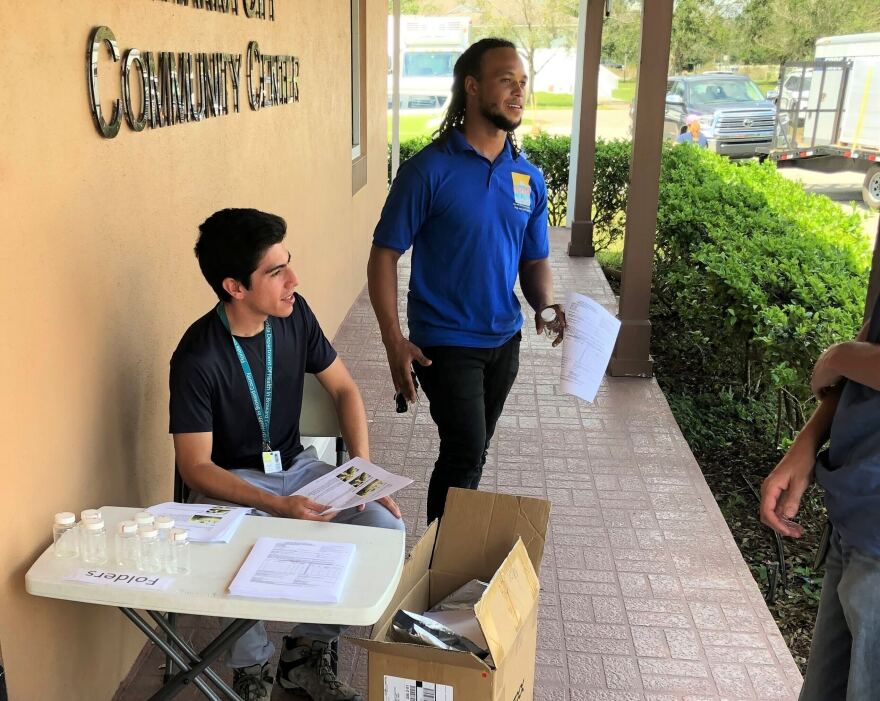During a storm surge or flood, as in the case of Hurricane Ian, sewage runoff and overflow from rivers and streams could carry bacteria such as E. coli and cholera, protozoa such as Giardia and viruses such as hepatitis.
Health officials say those who get their water from a well should boil it as a precaution because their water supply may have been flooded. The well water should be brought to a rolling boil for at least one minute. Aerating the water by pouring it several times from one container to another will help to dispel the flat taste of boiled water.
Manatee County is also providing sterile bottles to residents so they can collect water samples from their wells and then return them for testing.
Residents can pick up a sterile bottle and instructions for collecting a sample of well water at the Myakka Community Center in Myakka City.
Thomas Larkin is an environmental manager for the Florida Department of Health in Manatee County. He says when a well is flooded, there is always the potential that bacteria and pathogens can go down the well.
“So, if the residents drink that water without it being properly disinfected and cleaned, they certainly could get a variety of gastrointestinal illnesses from that water,” he said.
The free test can rule out contamination.
"We have staff out there to give residents a tutorial on how to collect a valid water sample from their well," Larkin said. "They can return it to us and we will courier it to the lab and we can get them results typically the next day.”
Larkin adds that if results do come back as contaminated, the county can also provide resources on how to disinfect a well.
Click here for more information on well water testing.








